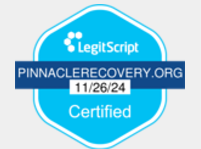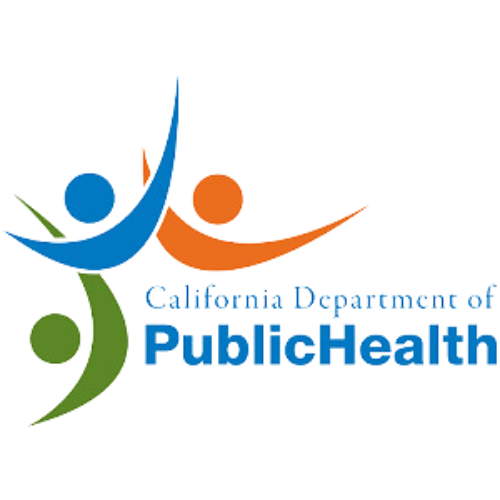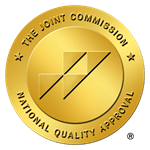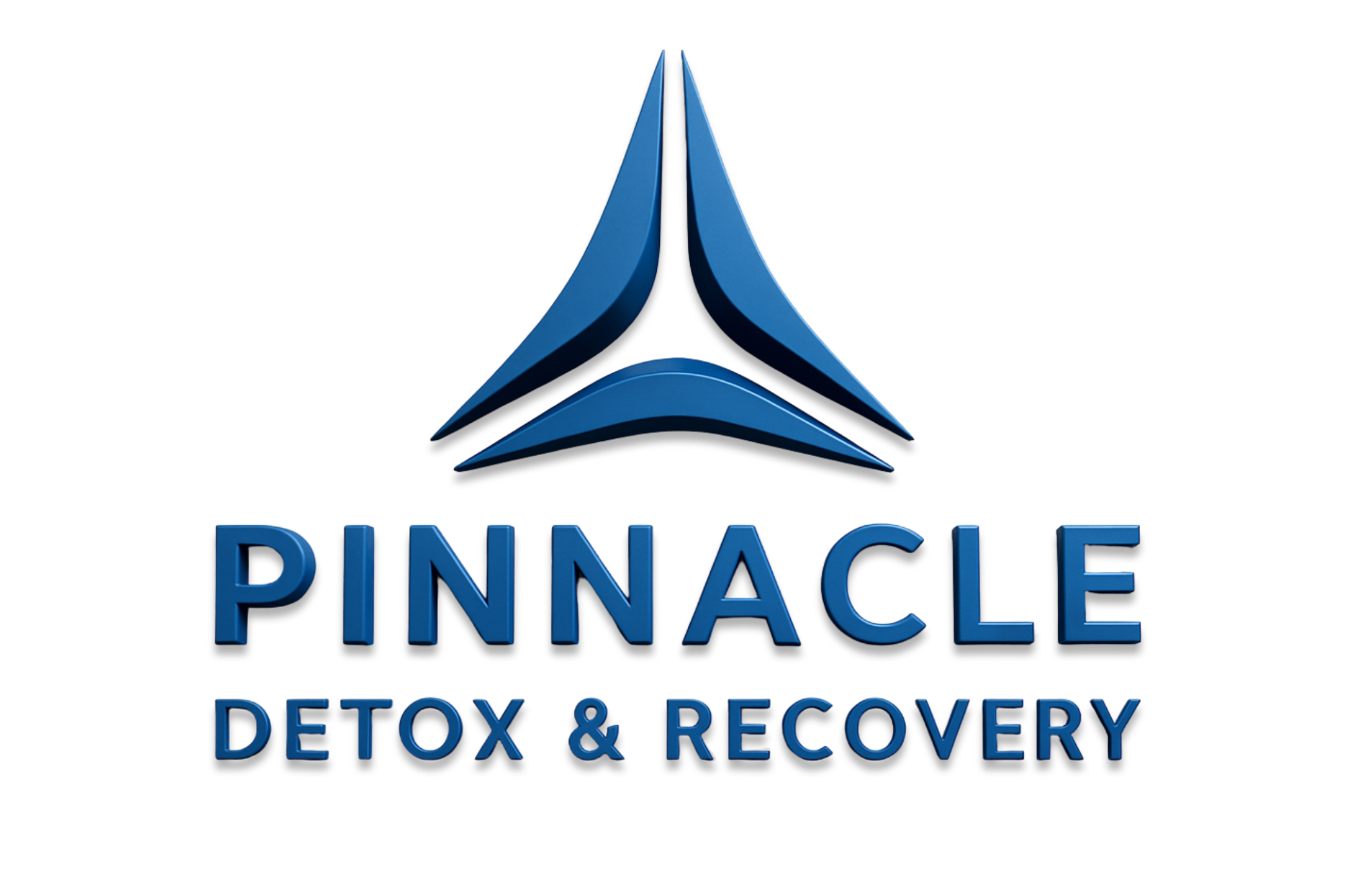Group support activities considerably reduce relapse rates by up to 25% through
peer connections and
evidence-based techniques. You'll benefit from
CBT and motivational strategies, skills training exercises, and creative expression activities that strengthen recovery networks. Trust-building exercises, role-playing scenarios, and mindfulness practices help you develop essential coping mechanisms and communication skills. Regular participation in structured group activities, combined with celebrating recovery milestones, creates an extensive foundation for lasting sobriety success. The following strategies will expand your
relapse prevention toolkit.
Understanding the Power of Group Recovery Support
While individual recovery paths are unique, research consistently demonstrates that
group support serves as a cornerstone of successful
substance abuse treatment and
relapse prevention. You'll find that active
participation in support groups can reduce relapse rates by up to 25% while fostering
accountability through peer connections and shared experiences. Studies show that
peer support services have led to improved relationships with treatment providers and enhanced social support networks. About
85 percent of participants in support groups report experiencing an improved sense of self-worth and personal value. Research indicates that
quality of life significantly improves with greater social support during recovery.
The power of group diversity lies in its ability to provide multiple forms of support, emotional,
tangible, and affectionate, that directly improve your recovery journey. When you engage in group support activities, you're considerably decreasing your risk of treatment dropout and psychological stress compared to facing recovery alone. The evidence is clear: 90% of individuals who maintain group involvement and achieve two years of sobriety go on to sustain their recovery for a decade or more.
Evidence-Based Therapy Techniques for Group Settings
When you're facilitating
group therapy for
substance abuse recovery, you'll find that combining
CBT techniques with motivational strengthening strategies creates a powerful foundation for lasting change. To maintain a secure environment for recovery discussion, therapists should ensure the
online sessions are protected against potential security threats. You can strengthen group engagement by incorporating structured skills practice sessions that allow participants to actively model coping mechanisms and receive real-time feedback from peers. Your implementation of
evidence-based activities, such as trigger identification exercises and role-playing refusal skills, will help group members develop practical tools for managing high-risk situations in their daily lives. These group sessions should follow a
preplanned curriculum to maintain structure and ensure comprehensive coverage of essential recovery topics. Since
open enrollment groups are common in treatment facilities, it's important to design sessions that can accommodate clients entering and leaving at different stages of recovery.
CBT Group Success Strategies
Because successful CBT group therapy requires systematic implementation of evidence-based techniques, facilitators must focus on core therapeutic elements that enhance treatment outcomes. You'll need to conduct systematic assessment of participants' needs while tracking progress through structured protocols and evidence-based worksheets.
| Success Strategy |
Implementation Method |
| Cohesion Building |
Regular group exercises and shared goal-setting |
| Skills Training |
Role-play scenarios with peer feedback |
| Cognitive Work |
Guided imagery and thought restructuring |
| Behavioral Practice |
Coping skills rehearsal and trigger management |
| Progress Monitoring |
Self-monitoring logs and outcome measurement |
To bolster effectiveness, you'll want to incorporate mindfulness techniques, functional analysis, and structured group dynamics. Research has shown that
contingency management approaches demonstrate greater effectiveness compared to other behavioral treatments. In Indiana,
91.9% of facilities offer outpatient CBT services, demonstrating its widespread adoption in treatment programs. Focus on developing practical coping strategies while building communication skills through interactive exercises. Implementing
psychoeducational components has proven particularly effective in group settings for addressing substance use disorders. Remember to maintain clear session agendas and utilize psychoeducation to reinforce understanding of substance use patterns and relapse prevention strategies.
Motivational Group Session Techniques
As group facilitators implement
evidence-based motivational techniques, they'll need to master
core principles that improve treatment outcomes in
substance abuse recovery groups. You'll find success by emphasizing empathy, developing discrepancy, and supporting
self-efficacy while integrating
behavioral goal setting activities. Through open-ended questions and reflective listening, you can guide participants in the direction of emotional intelligence development and deeper engagement with recovery objectives. Creating a
safe therapeutic space allows members to openly share their struggles and victories with substance abuse.
Research consistently shows that
evidence-based group therapy produces higher rates of sustained recovery. Your role involves highlighting change talk, using
decisional balance exercises, and leveraging peer feedback to reinforce motivation. You'll want to incorporate scaling questions to promote self-reflection and group encouragement. Remember to maintain a directive yet collaborative stance that fosters safety and open discussion. By addressing ambivalence through group dialogue and normalizing shared experiences, you'll help members build
sustainable recovery strategies and reduce relapse risks.
Skills Training Activity Design
Designing effective
skills training activities requires a strategic blend of
evidence-based therapeutic approaches for substance abuse recovery groups. You'll want to incorporate
skill sequence mapping to structure your sessions, beginning with foundational CBT techniques like trigger identification before advancing to more complex interpersonal skills.
Create a skills integration framework that combines
cognitive-behavioral exercises,
interpersonal process work, and
contingency management principles. The framework should include
emotion regulation skills adapted from DBT to help participants manage intense feelings. You'll achieve ideal results by layering psychoeducational content with practical application through role-playing, feedback exchanges, and behavioral rehearsal. Start with self-monitoring activities, then progress to group-based scenarios that allow participants to practice refusal skills and healthy coping strategies. Include token-based reinforcement systems to maintain engagement while participants work through increasingly challenging skill modules.
Building Trust Through Peer Support Activities
When you share
personal stories of recovery in a group setting, you'll establish meaningful connections that naturally strengthen trust among participants. You'll find that
maintaining strict confidentiality creates a secure environment where members feel safe to express vulnerabilities and challenges without fear of judgment. Through structured
trust-building exercises, you'll develop deeper bonds with peers who understand your path, leading to more effective support and accountability in your recovery process. These support activities are especially crucial during the
early abstinence stage when coping with cravings and avoiding relapses are primary concerns. To ensure ongoing security and safety during online group sessions, many platforms utilize
protective measures to safeguard participants from potential cyber threats. Developing a
personal support network through these group activities is essential, as approximately 60% of individuals with substance dependence ultimately achieve sustained recovery through multiple treatment cycles.
Shared Stories Build Connection
The power of
shared narratives in substance abuse recovery groups creates profound connections that combat isolation and
foster lasting sobriety. Through narrative sharing, you'll uncover that your struggles aren't unique, which helps
diminish feelings of shame and stigma. When you hear others' stories of challenge and triumph, you're building shared connections that strengthen your recovery foundation.
These exchanges of personal experiences serve multiple therapeutic purposes. You'll gain
practical coping strategies from peers who've faced similar challenges, while developing critical problem-solving skills through observational learning. As you participate in storytelling sessions, you're simultaneously
building trust and accountability within the group. This vulnerability creates a
nonjudgmental environment where you can express yourself authentically and receive validation from others who truly understand your expedition.
Confidentiality Strengthens Group Bonds
Strong
confidentiality practices serve as the cornerstone of effective substance abuse support groups, creating an environment where you'll feel safe to explore into vulnerable topics and share authentic experiences. Research shows that when groups emphasize privacy protection, you're more likely to openly discuss triggers and participate in
relapse prevention activities.
Trust-Building Exercises Matter
Building trust through
structured peer activities forms a critical foundation for successful substance abuse recovery groups. You'll find that collaborative exercises, such as
trust falls and
support circles, foster mutual understanding while strengthening interpersonal bonds. Through
role-play scenarios, you're able to practice vulnerability and active listening in a protected environment.
Group commitments and
feedback sessions help you develop reliability and nonverbal communication skills essential for recovery. When you consistently participate in these structured activities, you're demonstrating accountability while building confidence in the group process. Research shows that these trust-building exercises contribute directly to lower
relapse rates by creating a supportive climate where you can openly discuss challenges. Regular engagement in these activities helps establish the emotional safety needed for sustainable recovery.
Creative Expression and Art-Based Recovery Groups
While traditional
talk therapy remains foundational in substance abuse treatment, creative expression and
art-based recovery groups have emerged as powerful therapeutic interventions, with studies showing 68% of participants reporting
reduced substance use through art therapy engagement. Through painting, drawing, and collage-making, you'll find a safe, non-verbal outlet for processing trauma and managing difficult emotions that often fuel addiction cycles.
Art therapy helps you reduce feelings of shame and guilt while improving your
emotional regulation and
self-esteem. You'll develop positive coping mechanisms that replace substance use during moments of emotional overwhelm. When participating in group settings, you'll benefit from shared creative experiences that foster trust, accountability, and mutual support. The art-making process enables you to identify personal triggers, strengthen self-awareness, and build lasting
recovery strategies.
Developing Essential Communication Skills Together
Effective communication forms the cornerstone of
lasting recovery, working alongside
creative therapies to strengthen your resilience against relapse. In group settings, you'll develop
assertive communication skills through structured practice, learning to express needs clearly while respecting others' boundaries.
Your participation in
active listening exercises builds empathy and trust, enabling you to provide constructive feedback to peers while fostering accountability within the group. Through role-playing and
conflict resolution workshops, you'll gain practical tools for managing
interpersonal challenges that could threaten your sobriety.
As you consistently practice these skills, you'll strengthen your support network and develop habits that protect against relapse. Using "I" statements and
reflecting techniques helps you maintain emotional stability while contributing to a supportive environment where all members can share openly and receive validation.
Mindfulness and Stress Management Practices
When you practice
mindful breathing exercises with your support group, you'll develop greater emotional control and awareness of physical sensations that often precede cravings or stress responses.
Group meditation sessions enable you to learn from others' experiences while strengthening your own mindfulness skills through shared focus and mutual encouragement. Your recovery trek benefits from incorporating
mindful movement and grounding techniques, which research shows can help regulate your nervous system and provide concrete tools for
managing triggers in daily life.
Breathing for Emotional Control
Through consistent practice of mindful breathing techniques, individuals in substance abuse recovery can develop powerful tools for emotional regulation and craving management. Conscious breathing activates your parasympathetic nervous system, promoting physiological regulation and reducing stress-induced relapse risks.
| Breathing Technique |
Benefits |
| 4-7-8 Breathing |
Reduces anxiety and panic symptoms |
| Box Breathing |
Regulates heart rate and induces calm |
| Deep Diaphragmatic |
Increases oxygenation and well-being |
| Breath Tracking |
Amplifies focus and group participation |
| Daily Practice |
Builds emotional resilience and stability |
You'll find these techniques particularly effective during intense cravings or emotional distress. By incorporating breathwork into your daily routine, you're strengthening your ability to recognize triggers and respond mindfully rather than reactively. This practice supports both psychological and physical aspects of recovery, offering a drug-free coping strategy you can access anywhere, anytime.
Group Meditation Techniques Together
Four essential
group meditation techniques provide powerful tools for sustaining recovery and preventing relapse in substance abuse treatment. Through
mindfulness meditation, you'll cultivate present-centered awareness that reduces cravings and boosts emotional regulation.
Body scan practices help you reconnect with physical sensations, enabling early detection of relapse warning signs while promoting group cohesion.
The meditation benefits extend further through
loving-kindness practices, which foster self-forgiveness and strengthen peer support networks essential for holistic recovery approaches. You'll develop greater resilience to social stressors and improved emotional regulation.
Guided visualization techniques complete the framework by helping you envision successful recovery scenarios and activate relaxation responses. Together, these practices considerably increase your chances of maintaining
long-term sobriety, with studies showing up to 2.5 times
higher abstinence rates.
Mindful Movement and Grounding
Building on meditation's mental benefits,
mindful movement and
grounding techniques add powerful physical dimensions to
relapse prevention strategies. You'll learn to recognize mindful cues through gentle practices like
yoga and Tai Chi, which help you stay present while reducing physical tension and stress. These movement patterns provide accessible alternatives if you find seated meditation challenging.
Grounding exercises, such as the "5-4-3-2-1"
sensory method, anchor you in the present moment and interrupt automatic substance-seeking behaviors. When practiced in group settings, these techniques bolster your distress tolerance and enhance your ability to manage triggers. Research shows that combining mindful movement with traditional treatment considerably lowers relapse rates and improves recovery outcomes. You'll develop heightened body awareness and emotional regulation skills, creating a stronger foundation for
long-term sobriety.
Social Activities for Strengthening Recovery Networks
When individuals commit to recovery from substance abuse, establishing
strong social networks becomes a
critical foundation for long-term success. You'll find that engaging in
structured group activities helps
prevent isolation while building
meaningful connections with others who share your recovery goals. Research shows that participating in community service and sober recreational events drastically reduces relapse risk and fortifies long-term sobriety.
- Join mutual-help groups and take active roles through sponsorship or service positions
- Participate in shared hobbies like sports, art, or music groups to fill leisure time productively
- Connect with sober living communities that provide peer support and accountability
- Engage with recovery-friendly workplaces and alumni networks for community integration
These social connections create a supportive environment where you can practice new skills, share experiences, and strengthen your commitment to recovery through
positive relationships.
Role-Playing Exercises for Real-Life Challenges
Role-playing exercises stand as a powerful
therapeutic tool that complements social support networks in recovery. When you're applying role play in group settings, you'll practice essential
refusal skills and
coping strategies for
high-risk situations. Through guided scenarios, you'll rehearse assertive responses to peer pressure and develop "go-to" phrases for declining substance use.
The experience becomes more meaningful through
debriefing reflections, where you'll investigate your emotional responses and discuss effective techniques with peers. You'll learn to integrate
mindfulness-based approaches while simulating triggering situations, strengthening your ability to remain non-reactive. This evidence-based method helps you build confidence in managing real-world challenges, from social gatherings to emotional distress. With regular practice, you'll improve your
self-awareness and decision-making skills, vital elements for maintaining long-term recovery.
Celebrating Recovery Milestones as a Group
As individuals progress through recovery, celebrating milestones in group settings provides
essential reinforcement and motivation for sustained sobriety. Research shows that
commemorating transformation through structured group celebrations considerably
reduces relapse rates and improves long-term recovery outcomes.
Group celebrations in recovery create vital motivation and accountability, marking transformative moments while strengthening the path to lasting sobriety.
- You'll experience decreased depressive symptoms and increased self-worth through regular participation in milestone celebrations
- You can benefit from diverse celebration formats, including tokens, reflection sessions, and social gatherings
- You'll find inspiration in witnessing peers' achievements, which demonstrates the possibility of sustained recovery
- You'll strengthen your support network as family and friends join in celebrating personal growth
These evidence-based practices create anchors for your recovery path while fostering accountability and community connection. Group milestone celebrations serve as powerful tools for maintaining sobriety and building
emotional resilience through shared experiences and mutual support.
Practical Strategies for Trigger Management
Building on the strength of
group celebrations, effective
trigger management stands as a cornerstone of
sustained recovery. When you're managing
emotional triggers, you'll need to develop specific strategies that resonate with your personal experience. Start by cultivating self-awareness through mindfulness practices and journaling to identify your unique triggers.
You can strengthen your defenses by participating in group activities that focus on
trigger response role-playing and skill-building exercises. Working with peers helps you practice refusal techniques and develop healthy coping mechanisms in a safe environment. Moreover, you'll benefit from restructuring your daily routines and establishing clear boundaries to minimize exposure to high-risk situations. Remember, it's not about avoiding all discomfort, but rather building your capacity to respond to triggers with healthy alternatives and support from your
recovery community.
Frequently Asked Questions
How Long Should Someone Participate in Group Support Activities?
You'll benefit most from an
ongoing commitment of at least 12 sessions, though longer participation shows better outcomes. Research supports
regular attendance for
6-12 months or more, especially in early recovery. While there's no universal timeline, your specific needs, recovery stage, and progress should guide duration. You can adjust frequency over time, starting with more frequent sessions and gradually reducing as you build stronger recovery skills.
What Happens if a Group Member Relapses During Recovery?
If you
relapse during recovery, you'll find your
group environment remains supportive and
non-judgmental. Your group member's emotions may include
shame or fear, but facilitators will help process these feelings constructively. You'll be encouraged to continue attending sessions while your peers implement peer support strategies, including sharing similar experiences and reinforcing recovery goals. The group will use your experience as a learning opportunity to strengthen everyone's understanding of relapse triggers and prevention techniques.
Can Family Members Join Substance Abuse Support Groups?
Yes, you can join
specialized support groups designed specifically for family members of those struggling with substance abuse. Your
family involvement is essential to the
recovery process, and groups like Al-Anon, Nar-Anon, and Families Anonymous welcome relatives and friends. These groups maintain their own unique group dynamics separate from the person in recovery, offering you education, coping strategies, and
emotional support. You'll connect with others sharing similar experiences while learning effective ways to support your loved one.
Are Online Support Groups as Effective as In-Person Meetings?
Research shows that
virtual group therapy can be as effective as
in-person meetings, particularly for mild to moderate substance use cases. You'll find that
remote counseling sessions offer 24/7 accessibility and comparable treatment outcomes in many situations. However, they're most effective when matched to your specific needs. While online groups work well for some, you might benefit more from in-person meetings if you have severe substance use issues or require intensive support.
How Are Conflicts Between Group Members Typically Handled?
In well-structured groups, you'll typically see conflicts handled through a
two-tier approach to communicative resolution. Initially, a therapist leads mediation using structured tools and ground rules. As group dynamics mature, members learn to manage disagreements independently with
peer facilitation. You'll practice active listening,
emotional regulation, and "I" statements to address conflicts constructively. Regular check-ins and empathy exercises help prevent disputes from escalating into larger issues.
 While individual recovery paths are unique, research consistently demonstrates that group support serves as a cornerstone of successful substance abuse treatment and relapse prevention. You'll find that active participation in support groups can reduce relapse rates by up to 25% while fostering accountability through peer connections and shared experiences. Studies show that peer support services have led to improved relationships with treatment providers and enhanced social support networks. About 85 percent of participants in support groups report experiencing an improved sense of self-worth and personal value. Research indicates that quality of life significantly improves with greater social support during recovery.
The power of group diversity lies in its ability to provide multiple forms of support, emotional, tangible, and affectionate, that directly improve your recovery journey. When you engage in group support activities, you're considerably decreasing your risk of treatment dropout and psychological stress compared to facing recovery alone. The evidence is clear: 90% of individuals who maintain group involvement and achieve two years of sobriety go on to sustain their recovery for a decade or more.
While individual recovery paths are unique, research consistently demonstrates that group support serves as a cornerstone of successful substance abuse treatment and relapse prevention. You'll find that active participation in support groups can reduce relapse rates by up to 25% while fostering accountability through peer connections and shared experiences. Studies show that peer support services have led to improved relationships with treatment providers and enhanced social support networks. About 85 percent of participants in support groups report experiencing an improved sense of self-worth and personal value. Research indicates that quality of life significantly improves with greater social support during recovery.
The power of group diversity lies in its ability to provide multiple forms of support, emotional, tangible, and affectionate, that directly improve your recovery journey. When you engage in group support activities, you're considerably decreasing your risk of treatment dropout and psychological stress compared to facing recovery alone. The evidence is clear: 90% of individuals who maintain group involvement and achieve two years of sobriety go on to sustain their recovery for a decade or more.
 Effective communication forms the cornerstone of lasting recovery, working alongside creative therapies to strengthen your resilience against relapse. In group settings, you'll develop assertive communication skills through structured practice, learning to express needs clearly while respecting others' boundaries.
Your participation in active listening exercises builds empathy and trust, enabling you to provide constructive feedback to peers while fostering accountability within the group. Through role-playing and conflict resolution workshops, you'll gain practical tools for managing interpersonal challenges that could threaten your sobriety.
As you consistently practice these skills, you'll strengthen your support network and develop habits that protect against relapse. Using "I" statements and reflecting techniques helps you maintain emotional stability while contributing to a supportive environment where all members can share openly and receive validation.
Effective communication forms the cornerstone of lasting recovery, working alongside creative therapies to strengthen your resilience against relapse. In group settings, you'll develop assertive communication skills through structured practice, learning to express needs clearly while respecting others' boundaries.
Your participation in active listening exercises builds empathy and trust, enabling you to provide constructive feedback to peers while fostering accountability within the group. Through role-playing and conflict resolution workshops, you'll gain practical tools for managing interpersonal challenges that could threaten your sobriety.
As you consistently practice these skills, you'll strengthen your support network and develop habits that protect against relapse. Using "I" statements and reflecting techniques helps you maintain emotional stability while contributing to a supportive environment where all members can share openly and receive validation.
 Role-playing exercises stand as a powerful therapeutic tool that complements social support networks in recovery. When you're applying role play in group settings, you'll practice essential refusal skills and coping strategies for high-risk situations. Through guided scenarios, you'll rehearse assertive responses to peer pressure and develop "go-to" phrases for declining substance use.
The experience becomes more meaningful through debriefing reflections, where you'll investigate your emotional responses and discuss effective techniques with peers. You'll learn to integrate mindfulness-based approaches while simulating triggering situations, strengthening your ability to remain non-reactive. This evidence-based method helps you build confidence in managing real-world challenges, from social gatherings to emotional distress. With regular practice, you'll improve your self-awareness and decision-making skills, vital elements for maintaining long-term recovery.
Role-playing exercises stand as a powerful therapeutic tool that complements social support networks in recovery. When you're applying role play in group settings, you'll practice essential refusal skills and coping strategies for high-risk situations. Through guided scenarios, you'll rehearse assertive responses to peer pressure and develop "go-to" phrases for declining substance use.
The experience becomes more meaningful through debriefing reflections, where you'll investigate your emotional responses and discuss effective techniques with peers. You'll learn to integrate mindfulness-based approaches while simulating triggering situations, strengthening your ability to remain non-reactive. This evidence-based method helps you build confidence in managing real-world challenges, from social gatherings to emotional distress. With regular practice, you'll improve your self-awareness and decision-making skills, vital elements for maintaining long-term recovery.



